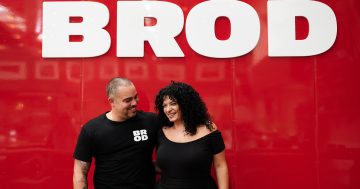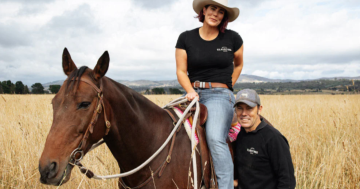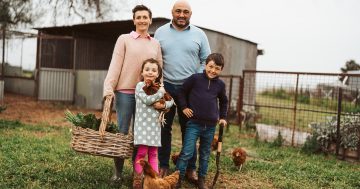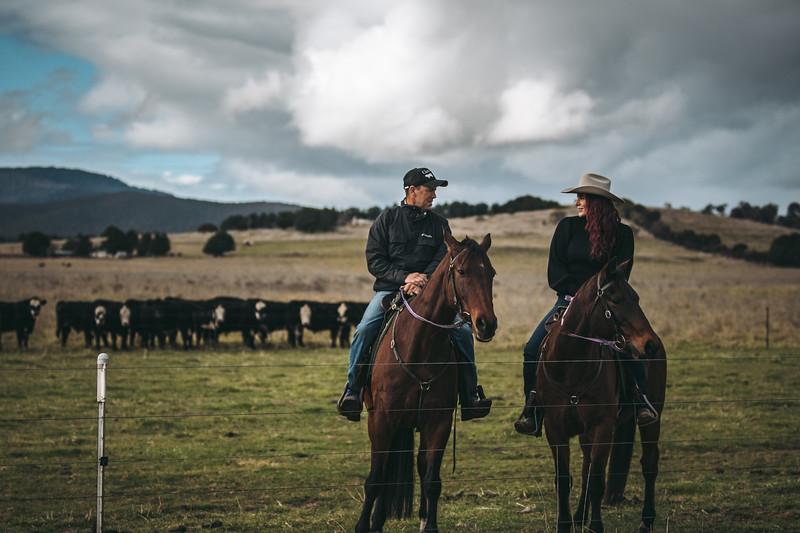
Stacey and Christian Allen on horseback at Claystone Farm. Photo: Laura Elizabeth Photography.
Stacey and Christian Allen ride into view like something out of central casting – all robust health, beaming smiles and perfect hair (well, Stacy’s anyway) despite the less than optimal weather.
The pair are accompanied by a couple of dozen cute-as-a-button cows. The cows stop briefly to inspect our group of onlookers before losing interest and heading off down the paddock.
The bucolic scene at Claystone Farm in Hoskinstown, about 40 km southeast of Canberra, seems the perfect place to launch a new business venture that is the epitome of sustainability.
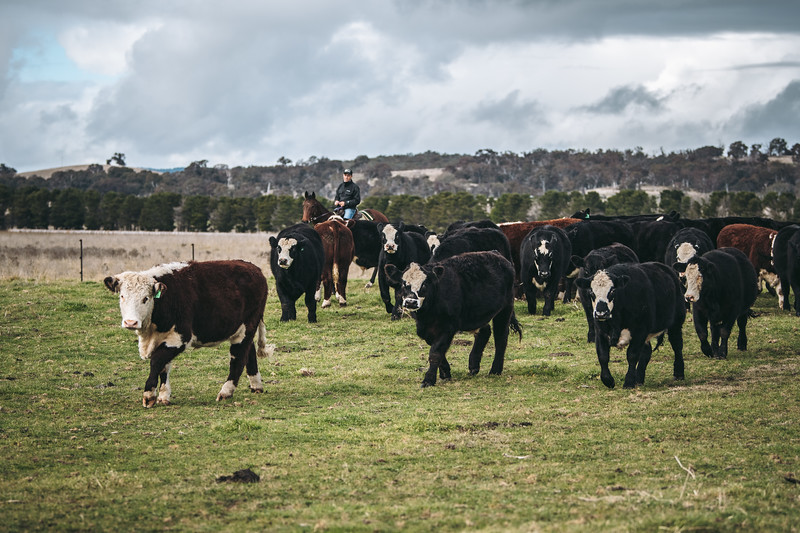
Cattle reared at Claystone Farm are sustainably farmed. Photo: Laura Elizabeth Photography.
The Allens have teamed up with Sascha and Joelle Brodbeck, best known for Brodburger, the Canberra burger business they launched from the back of a red caravan beside Lake Burley Griffin 12 years ago. Their goal is to deliver a new paddock-to-plate experience that cuts out the middleman to deliver high-quality beef to restaurants, retailers and, soon, the average Joe who likes more than your average steak.
The circular economy is front of mind for the four business partners who discovered a mutual opportunity when Sascha, on the lookout for some quality meat to keep the Brodburger business well-stocked, bumped into Stacey, whose family has farmed Hereford and Black Angus cattle on the expansive property for 34 years.
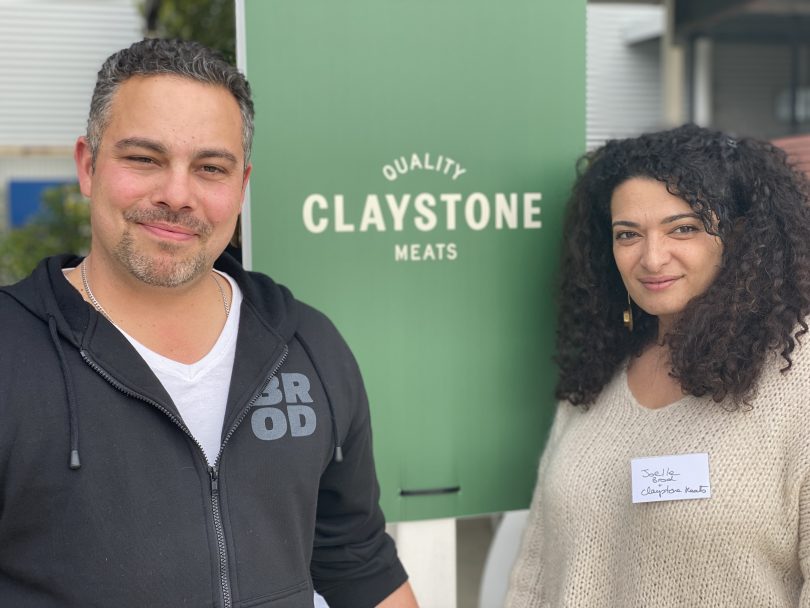
Sascha and Joelle Brodbeck have long been keen to supply their own beef and are now doing so through Claystone Quality Meats. Photo: Michelle Rowe.
What initially started as a steady supply of mince for Brodburger’s patties grew into a bigger vision. The four have just launched Claystone Quality Meats, which sees beef from cattle raised on the Allens’ farm supplied directly to a new purpose-built chilling, dry-ageing and processing facility run by Sascha and Joelle adjacent to the Regional Wholesale Fruit Market in Beard.
“Nobody is doing what we’re doing,” says Stacy, whose focus is squarely on humane farming.
“We take our own cattle to the abattoir. We don’t let anybody else transport them. And we use a small abattoir in Milton where we can be sure they are not kept in pens for days. They are processed within an hour.”
The 1200-strong herd is fed on a diet of grass and grain. In another nod to the circular economy, the grain is supplied by popular Canberra brewer BentSpoke Brewing Co, which found itself with a lot of by-product and nothing to do with it until the Allens came knocking.
“We struggled to get rid of that grain, so it’s good to have it going to a sustainable source,” says Richard Watkins, BentSpoke’s owner and founder who has joined us on the farm visit today.
“Our plan is to take some of the beef to use in our Brew Pub.”
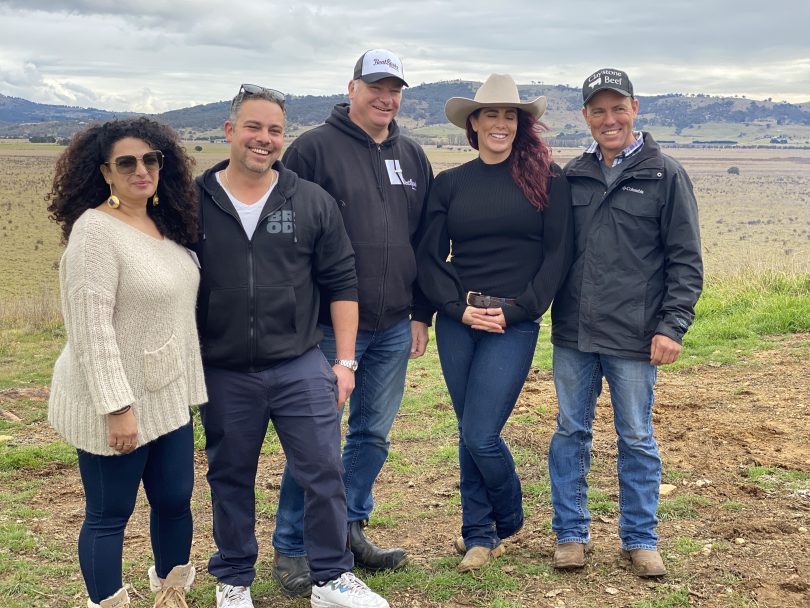
Joelle Brodbeck, Sascha Brodbeck, Richard Watkins, Stacey Allen and Christian Allen. Photo: Michelle Rowe.
Christian, whose dairy farming family has lived in Braidwood since the 1860s, says he “grew up with cattle and came to love them”. He strives to give them as good an existence as possible.
“This is a really natural way of feeding. They eat what they want – a mix of feed and free-range, molasses and hay. All the silage is grown on the property; it’s a complete diet. We believe the quality of the beef is higher for animals who have had as good a life as they could possibly have.”
Back in Beard, where our group has stopped after the farm tour, Sascha proudly shows us the cool rooms that have been set up to facilitate the entire production process, from cutting and mincing to packaging in a climate-controlled environment.
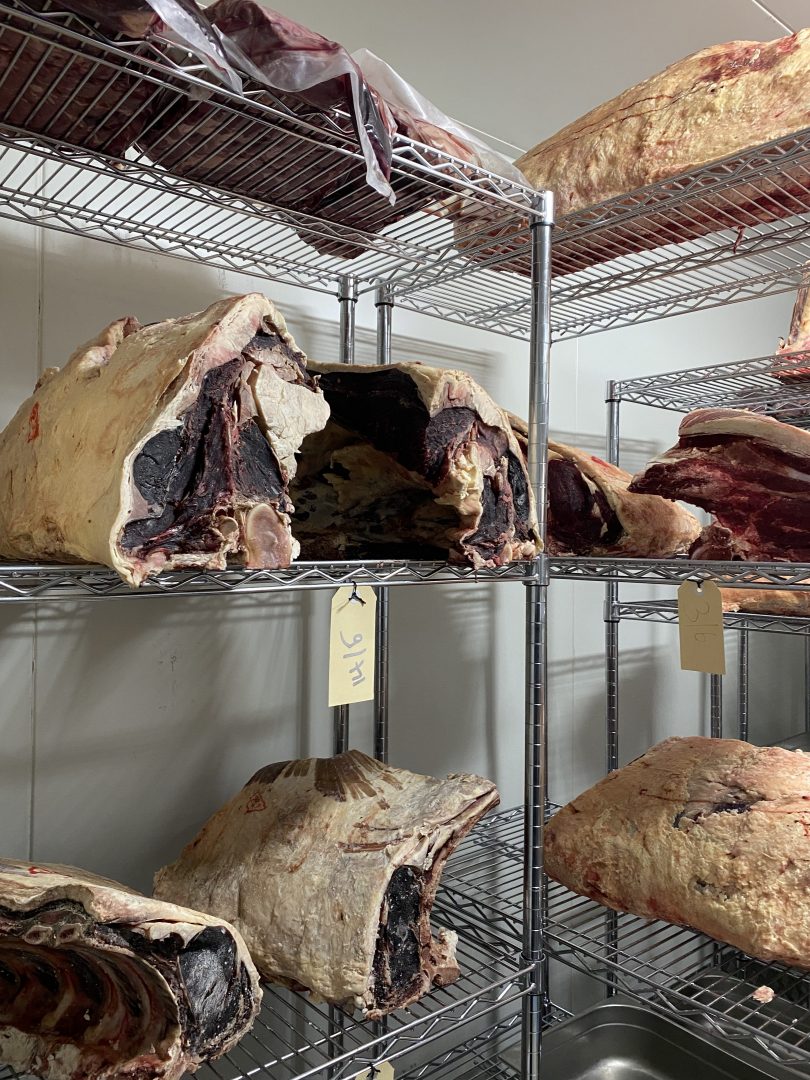
Prime cuts are stored on dry-ageing racks at the new facility. Photo: Michelle Rowe.
He’s particularly proud of the dry-ageing room, where the natural enzymes in the meat go to work to create a more tender, concentrated flavour over a longer period. It certainly smells funky, but Sascha assures us this is exactly the aim.
“The quality sings to you,” he says, adding that he and Joelle have long wanted to source and supply their own meat. “We go through so much mince with Brodburger and we are striving for a quality product. What we’re doing here means there is zero waste.”
There is already keen interest from the industry in what the new business partners are doing. Also checking out the new facilities today are several local chefs and restaurant owners, including Mork and Benn Ratanakosol of Morks in Kingston.
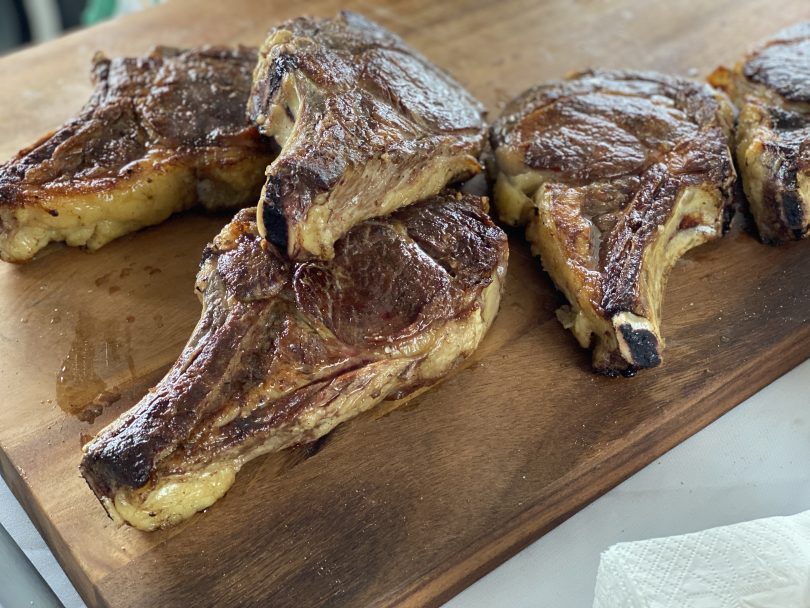
Quality steaks from Claystone are now on the menu. Photo: Michelle Rowe.
After visiting the cool rooms, we begin what could be described as a ‘vertical tasting’ of meats, ably cooked by Sascha’s dad on a portable barbie just outside the new facility. We’ve sampled everything from young cuts to aged T-bones and short rib. I like the aged cuts best.
Mork is particularly taken by the short rib (which has been cooked sous-vide style for 34 hours), for which he’s already thinking about a recipe involving Indonesian long peppers to introduce in the restaurant.
Mork is enthusiastic about this new venture, which he says offers restaurateurs peace of mind at a time when diners are increasingly concerned about sustainability and provenance.
“As a restaurant, we tend to deal with the salesperson [rather than the farmer], so the past experience of the animal can be shrouded in mystery. With this, we get to see the process as a whole, from the calf being born to the end result. It gives us so much reassurance that what we cook and serve the customer is going to be quality,” he says.
“Food is life, and it should be the most important thing we think about.”
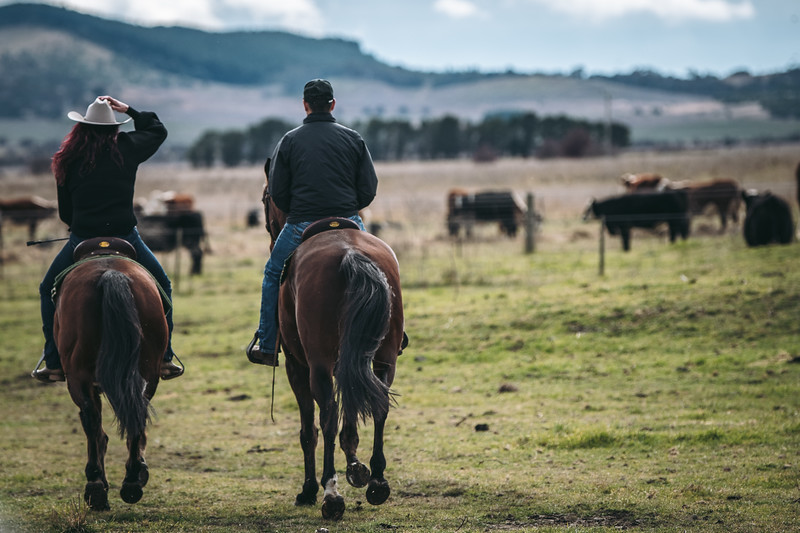
Claystone Farm focuses on ensuring the best quality of life for its cattle. Photo: Laura Elizabeth Photography.
While the immediate focus for Claystone Quality Meats will be on supplying keen restaurateurs and retailers, including Red Hill IGA, the public will have the opportunity to buy direct from the farm too. A new consumer-facing online store is due to be launched within the next two months.
And Sascha says the newly formed business will not be resting on its laurels. Claystone is considering branching out to other meats, including pork and chicken, a few sauces … and maybe even a permanent barbecue outside the new facility.
